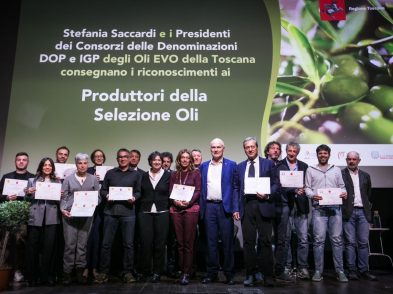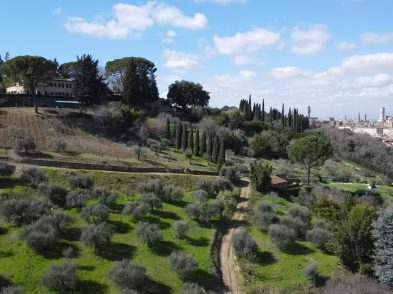The election of Congo-born Cécile Kyenge as integration minister back in April 2013 has put a global spotlight on Italy’s race problem and revealed some deeply conflicting feelings among Italians about immigration. Though international observers were already familiar with the racist taunts faced by black footballers and the former prime minister’s reference to Obama’s ‘tan,’ they have been shocked to hear not only about the kind of abuse Kyenge has been facing but also the fact that it comes from fellow politicians.
Those who have made the most grievous slurs are being brought to task, for the most part. In June, Dolores Valandro, a party leader with the Northern League, was fired immediately after calling, on her Facebook page, for Kyenge to be raped. And Lega Nord vice president of the Senate Roberto Calderoli, who compared Kyenge to an orangutan in July, will be going on trial in May to face charges of racially-motivated defamation. On the other hand, Lega Nord senator Gianluca Buonanno has not even felt compelled to apologize for wearing blackface in Italy’s parliament in January—just one in a fresh string of insults and acts of intimidation against the minister.

According to Florentine political science scholar Debora Spini, ‘While they may only represent a small percentage of the population, I’m sorry to say that all these insults and threats that Kyenge’s received show that a dark heart of racism still exists in Italy.’ One just has to glance at the most recent Chronicles of Ordinary Racism by Italian social-justice NPO Lunaria (in English at theflr.net/cdior) to see that Spini is right.
Of course, there’s nothing new about Italian politicians attacking each other with abusive language. But Spini argues the specific nature of the insults launched at Kyenge ‘explains a lot of the mentality behind racism, with a woman of colour being viewed exclusively as an available sex object. If a woman steps out of this framework whereby she can be bought or simply taken, she deserves even harsh punishment.’ In fact, Spini sees Kyenge’s intimidation going hand in hand with the misogynist attacks against Laura Boldrini, president of the chamber of deputies. ‘It’s clear that in this country, people have a hard time accepting women, especially young, attractive women like Kyenge or Boldrini, in positions of leadership, and that they must therefore be humiliated. Not attacked. Humiliated.’
The Lega Nord has instead accused Letta’s government of just using Kyenge as ineffectual ‘furniture,’ as Buonanno recently put it. ‘But she’s not just a symbol,’ says Spini, ‘She is in fact an expert and a person of substance.’
Unfortunately, the Italian media tends to focus on her struggles rather than what she is doing right. The American magazine Foreign Policy, on the other hand, named Kyenge a Leading Global Thinker of 2013 and the Huffington Post UK chose her as a Woman to Watch for 2014.
Spini says the problem is how Italians have been socialized to the concept of citizenship. ‘From this perspective we have much to learn not only from the US but even other places in Europe,’ she says. ‘It makes me laugh to see how French football players, many of whom are clearly not ethnically French, know all the words to their national anthem.’ Anyone who’s watched Italy’s national team on the field knows that the (predominantly white) players struggle to get past the first line of ‘L’inno di Mameli.’ ‘Because we’re socialized to a citizenship based on a supposed cultural identity,’ explains Spini. ‘When instead one would hope that being Italian signifies the sharing of constitutional values.’
Italian natives are not the only ones with the race problem, however. Florence-based Lebanese-American photojournalist Mark Abouzeid, who has worked closely with immigrants here, says we’re all guilty. ‘Even we stranieri have a stratified view of the community,’ he argues. ‘Florentines and the majority of transplants to Florence are xenophobic, afraid of “different.” It’s a city of ghettos and closed communities. Not just the locals but also the British for over 300 years, the Americans, the Chinese, etc.’ Like Kyenge, Abouzeid has made racial integration the focus of his work, which includes the internationally recognized and ongoing project Non Sono Clandestino. His numerous exhibits ‘always use a positive angle, always with music and art. And always few foreigners come,’ he says. ‘If we don’t support each other, why should the Italians make any changes?’
The fact is, change is happening. As reported by Stephan Faris for Time magazine in May, when Kyenge moved here from the Democratic Republic of the Congo in 1983, ‘she was at the forefront of a dramatic demographic shift in Italy. As recently as 1991, just 1 in 100 residents held a foreign passport. Today, it’s 1 out of every 12. For every five children delivered in the country, one is born to a foreign parent.’ And Kyenge’s election isn’t the only sign of this sea change. Take a look around and you’ll notice a lot more blacks in middle-class jobs in Italy than ever before.
With role models like Kyenge entering the collective Italian imagination, ‘the exclusively white blanket is falling apart,’ says Spini. ‘On a symbolic level, it’s definitely incredibly important to see an Italian government diverse in colour,’ says Spini, ‘because Italians actually are diverse in colour. This is a fact, and it’s something we should rejoice.’
Editor’s note.On February 22, 2014, Italy underwent a change in government. Kyenge is no longer integration minister; in fact, at present, Italy does not have an integration minister, nor does it have any non-Caucasian ministers.







